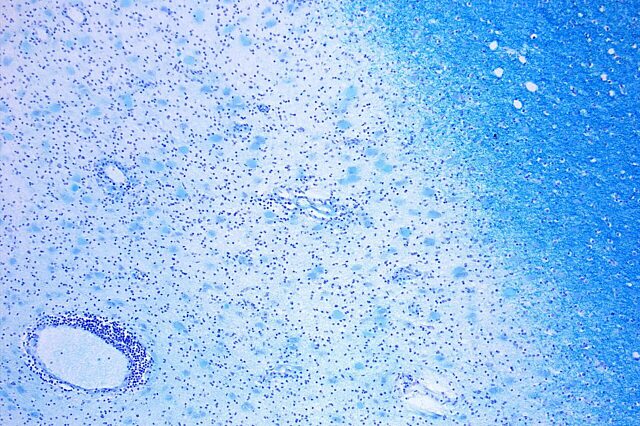University of Florida Health researchers discover molecule that impedes multiple sclerosis-like disease in mice

In multiple sclerosis patients, the body’s immune system goes rogue and attacks the protective covering on nerve fibers. Now, a group led by University of Florida Health researchers has found a crucial molecule impedes the development of a multiple sclerosis-like disease in mice.
Experimental autoimmune encephalomyelitis, or EAE, is commonly used in research because it mimics some of the traits of multiple sclerosis in humans. Multiple sclerosis affects about 2.3 million people worldwide and is the most common neurological disease in young adults.
An enzyme known as Hectd3 interacts with two proteins to create the environment that allows multiple sclerosis to flourish, the researchers found. Like throwing fuel on a fire, the enzyme modifies and activates the proteins that drive disease-causing immune cells into the central nervous system. By deleting the Hectd3 enzyme, the researchers were able to prevent EAE from developing in mice. The findings were published Feb. 11 in the journal Nature Communications.
The conclusions are an important first step in determining the initial molecular events that cause the development of multiple sclerosis, said Dorina Avram, Ph.D., a professor in the UF College of Medicine’s department of anatomy and cell biology and the lead scientist for the project. Jonathan Cho, a student in the College of Medicine’s M.D/Ph.D. program, was the first author on the study.
The findings are also significant because it is the first time that the Hectd3 enzyme’s role in modifying immune cells has been established. It also has implications for developing future treatments in humans: Interfering with the enzyme’s activity in the immune cells that cause multiple sclerosis is a potential path to developing therapies, Avram said.
Avram collaborated with four other UF principal investigators and UF Health Cancer Center members on the research, which was funded by the National Institutes of Health, the National Multiple Sclerosis Society and the UF Health Cancer Center.
About the author
